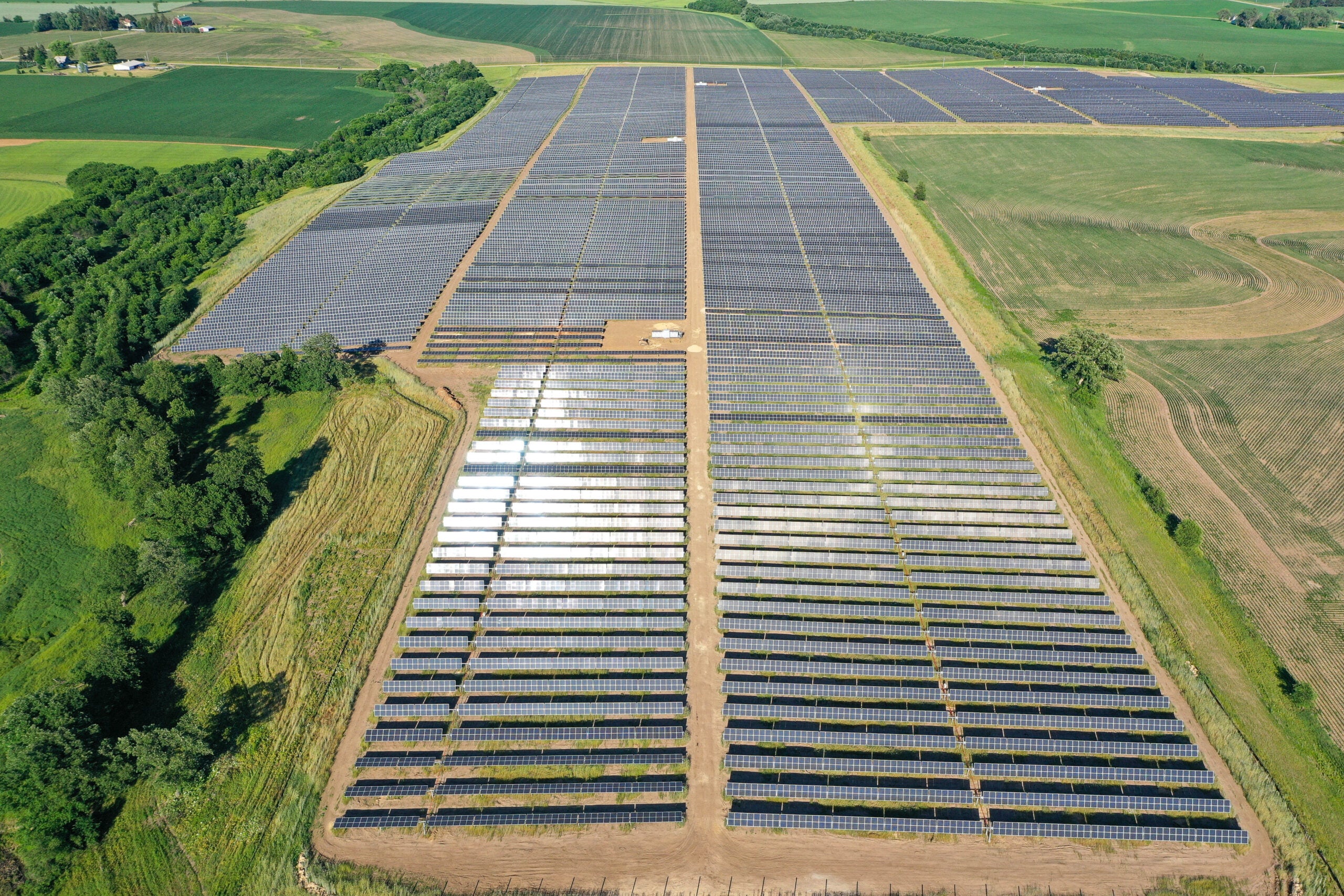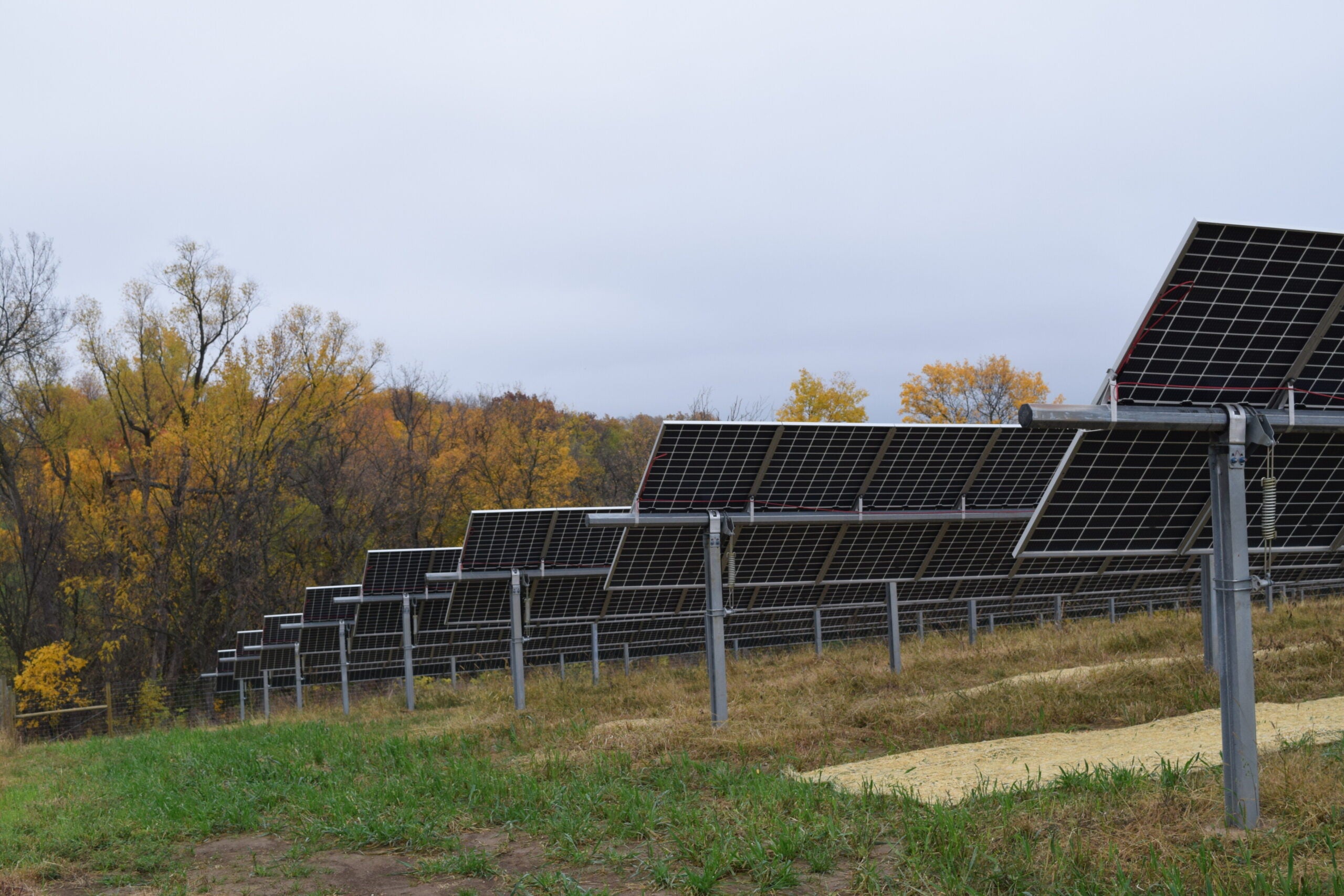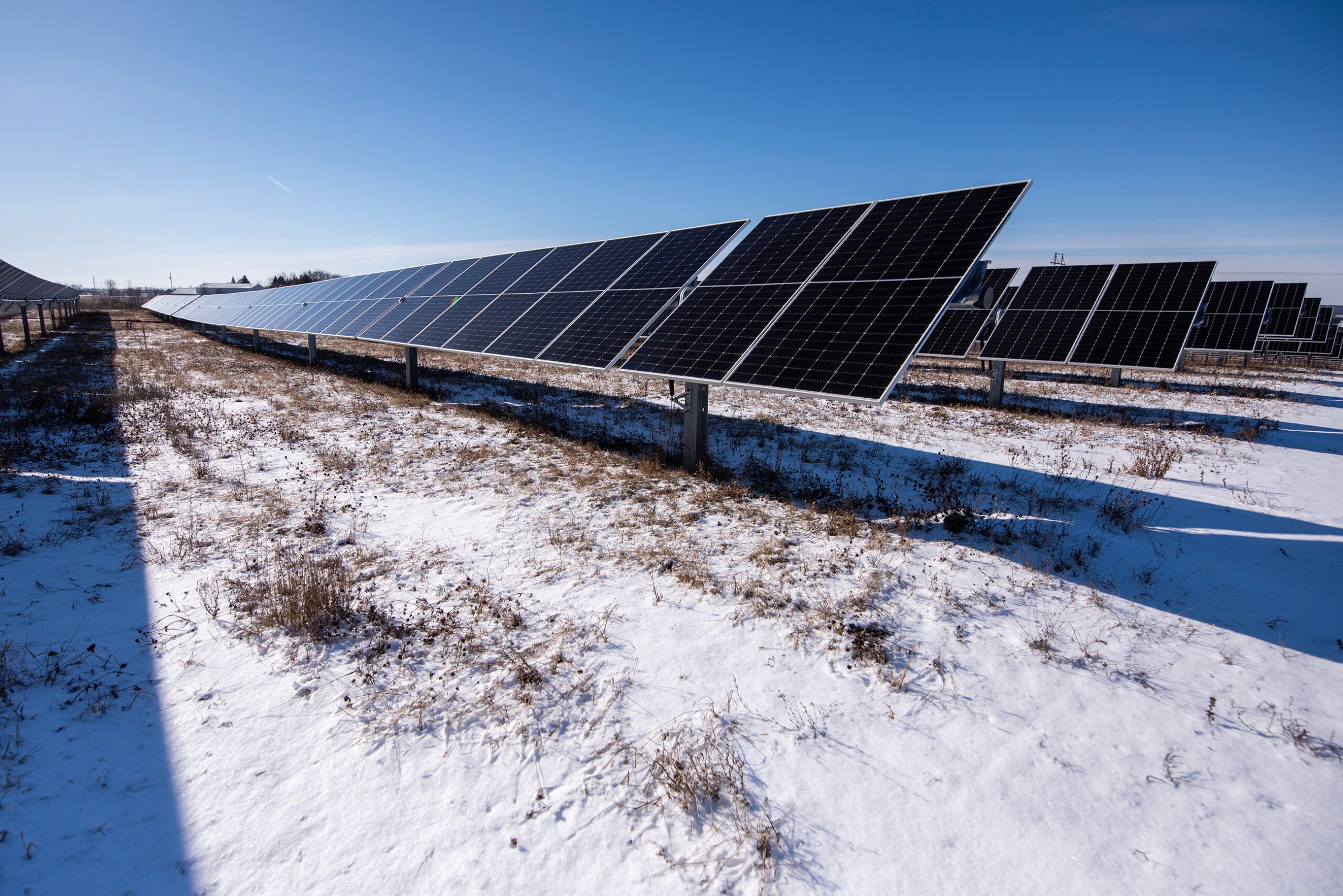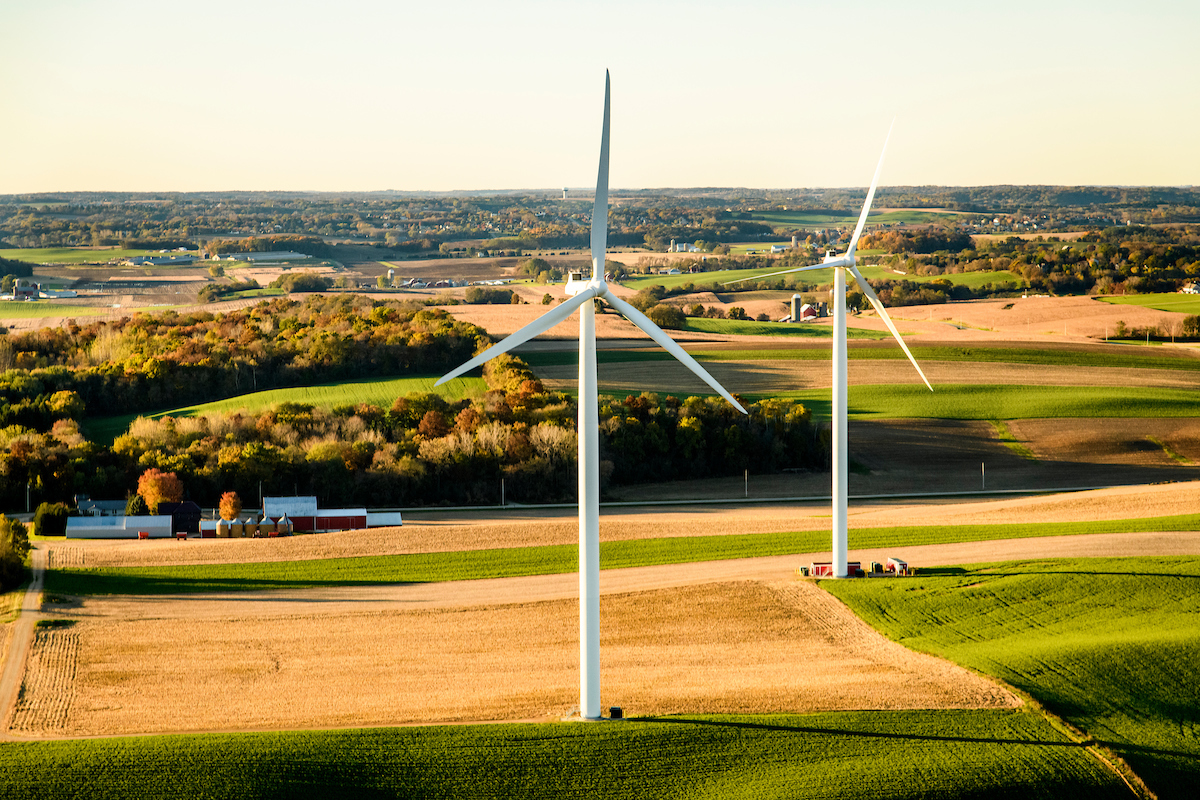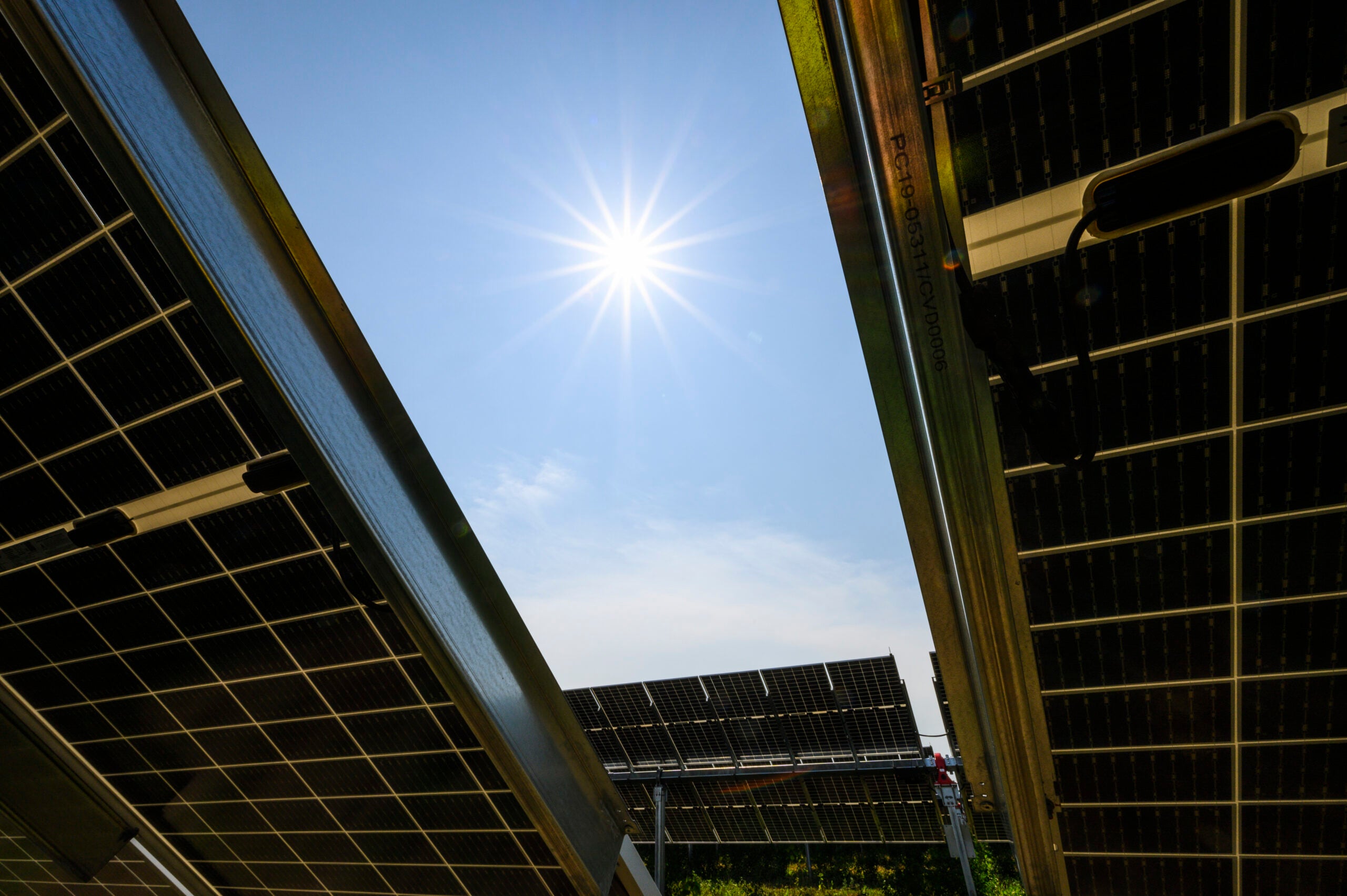Utility companies in Wisconsin are delaying solar power projects due to global supply chain issues and a federal investigation into whether China is evading tariffs by funneling panels through other countries.
Alliant Energy, Xcel Energy and Madison Gas and Electric notified the Wisconsin Public Service Commission in recent weeks that large-scale solar projects in Iowa County, Pierce County and Grant County are facing global headwinds and will be delayed for months.
Completion of Madison Gas and Electric’s Badger Hollow solar facility will be delayed from Dec. 31 to March 31, 2023. Xcel Energy’s Western Mustang solar facility, which was expected to begin producing power at the end of the year, is now projected to go live “sometime after 2023” according to a PSC filing.
News with a little more humanity
WPR’s “Wisconsin Today” newsletter keeps you connected to the state you love without feeling overwhelmed. No paywall. No agenda. No corporate filter.
The utilities say global supply chain disruptions have increased the prices of steel and solar panels, and caused long delays in shipments of solar equipment. The companies also point to a March announcement that the U.S. Department of Commerce will investigate whether panels from China are being built and sold by suppliers in Malaysia, Thailand, Cambodia and Vietnam.
Renew Wisconsin Policy Director Michael Vickerman said those four countries produce around 80 percent of the solar panels imported into the United States. As a result of the investigation, he said imports from those countries stopped.
“So, this had a profound, extremely disruptive effect on particularly the utility-scale solar segment of the marketplace, the very large solar projects that they depend on inexpensive panels from Asia,” said Vickerman.
The disruption has affected utility solar projects across America, said Vickerman, forcing several month delays.
“The utilities are being quite conservative or very cautious about staging their replacement capacity for the coal plants they intend to shut down,” said Vickerman.
Madison-based Alliant Energy and Milwaukee-based We Energies told the PSC on June 23 that coal-fired power plants in Sheboygan and Columbia County will stay online longer than anticipated.
The companies also expressed concerns about maintaining a stable power grid after the regional operator announced states, including Wisconsin, could see an energy shortage of 2,600 megawatts in 2023.
On June 6, President Joe Biden’s administration announced it would waive tariffs on solar panels imported to the U.S. from Cambodia, Malaysia, Thailand and Vietnam for two years.
Vickerman said that means supplies from those countries can continue without fears that potential penalties tied to the federal investigation will be delayed.
“So, I can anticipate a rush to lock in supplies of panels for the next two years as they won’t be subject to penalties,” said Vickerman. “But what happens beyond that point is anybody’s guess.”
There are other sources for solar panels including domestic producers and companies in Europe and other parts of Asia, said Vickerman. But with a large portion of the global supply disrupted, he said remaining suppliers are likely to raise their prices substantially.
In the meantime, Vickerman said businesses and homeowners can step in and install rooftop or small-scale solar installations capable of generating one to five megawatts. He said that will ease pressure on electrical grids as utilities pause their solar projects.
Wisconsin Public Radio, © Copyright 2025, Board of Regents of the University of Wisconsin System and Wisconsin Educational Communications Board.

